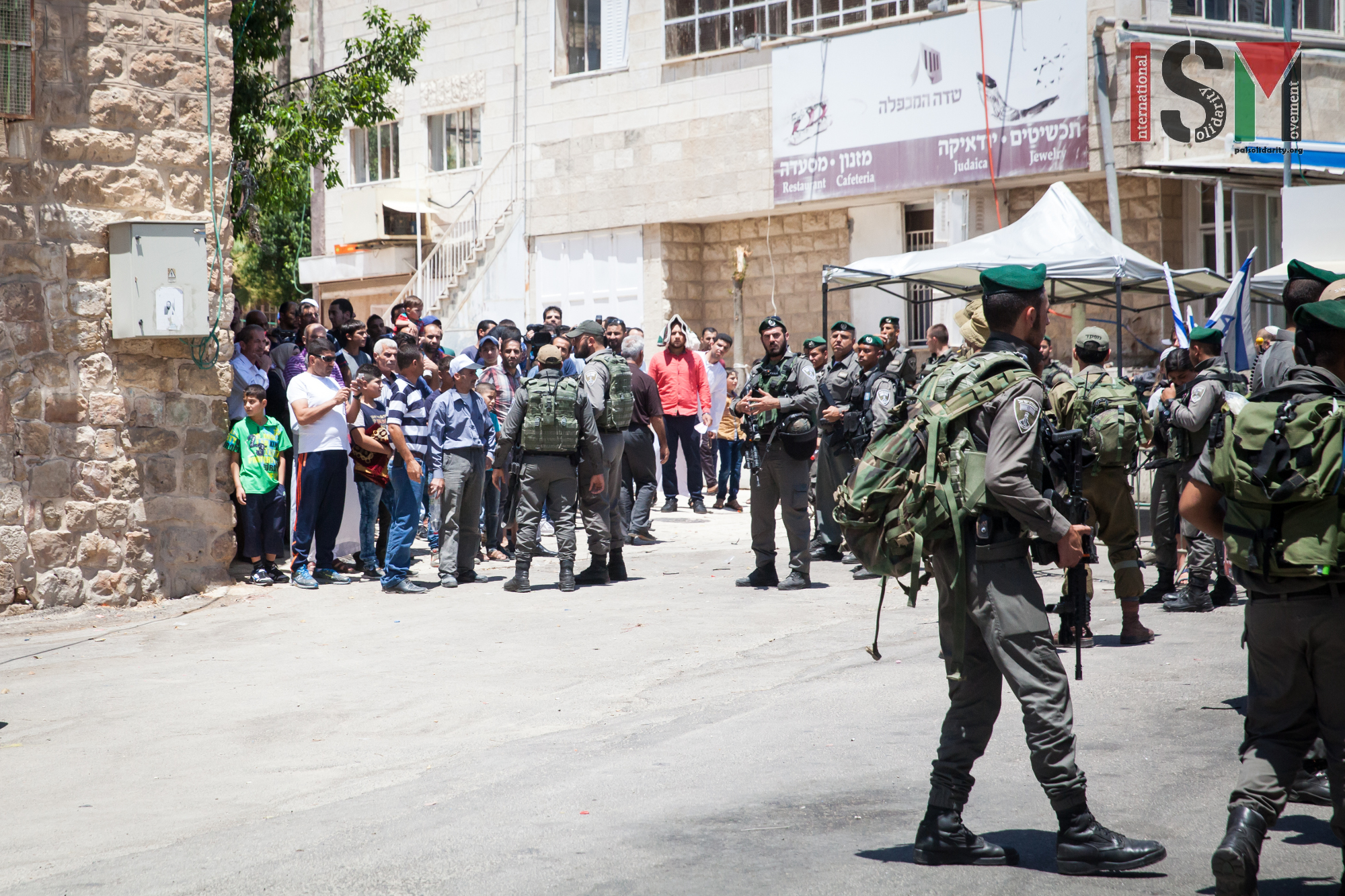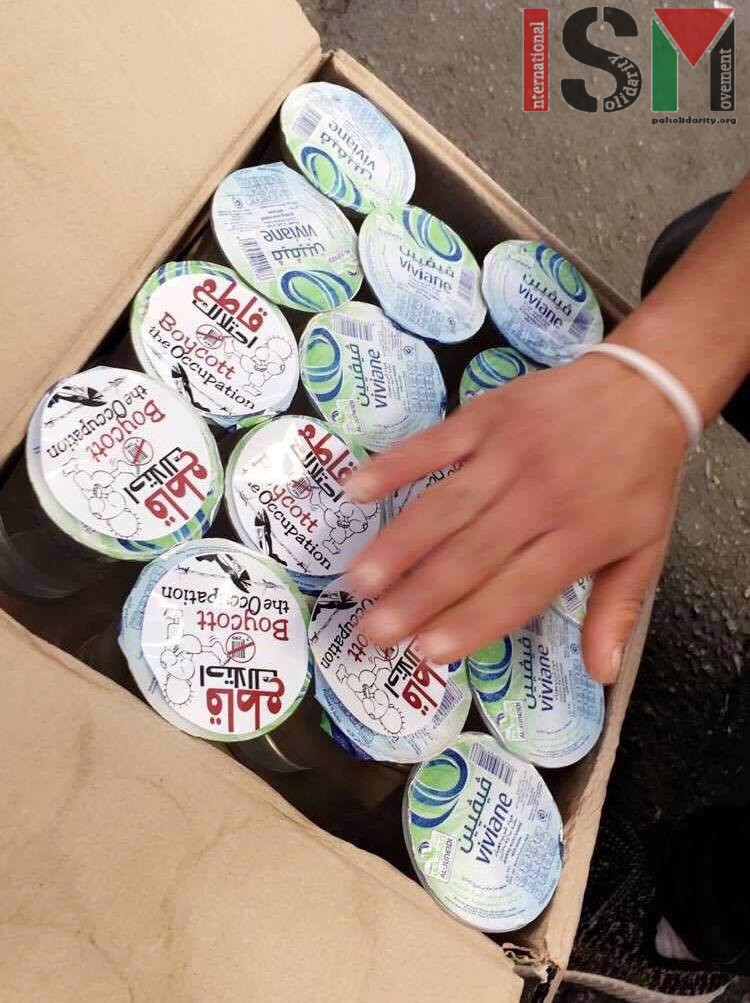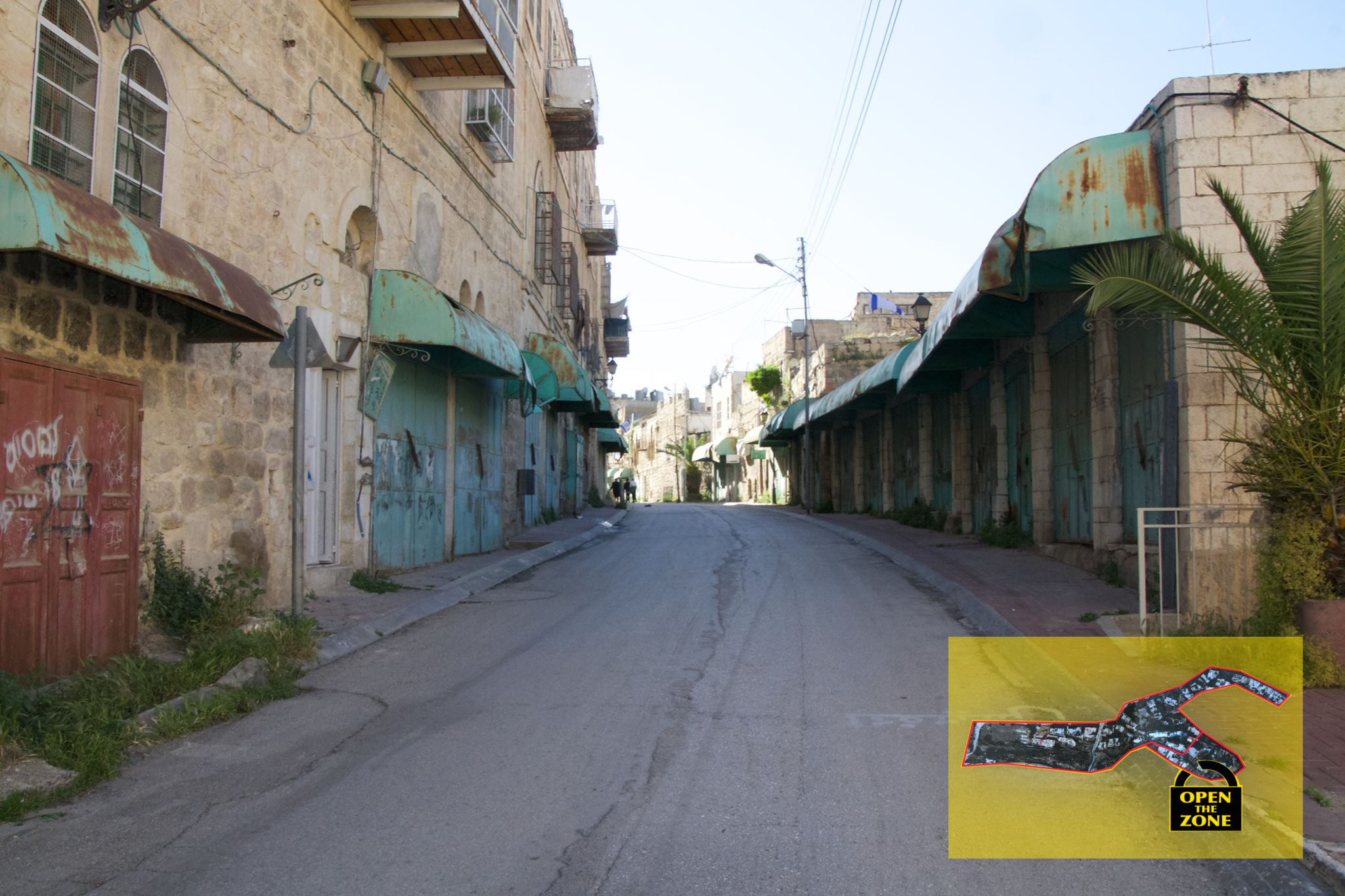Tag: Ethnic Cleansing
-
Worshippers for Ramadan prayer harassed by settlers and soldiers
1 July 2016 | International Solidarity Movement, al-Khalil team | Hebron, occupied Palestine On 1st July 2016, Israeli forces severly restricted access to Ibrahimi mosque in occupied al-Khalil (Hebron) for noon-prayer, while settlers were demonstrating at a checkpoint nearby the mosque. After pregnant 27-year old Sarah Tarayra was gunned down by Israeli forces at Ibrahimi…
-
Youth reminds Palestine of need for Boycott movement
26th June 2016 | International Solidarity Movement, al-Khalil team | Dura, occupied Palestine On June 25th 2016, the Tomorrow’s Youth Forum (Moltaqa Sawa’d) in cooperation with the Partnership Institution For Development distributed water and date packages in Dura’s city center near occupied al-Khalil (Hebron) to raise awareness about the Boycott, Divestment & Sanctions Movement (BDS)…
-
Arbitrary humiliation by Israeli forces in former closed military zone in Hebron
24th June 2016 | International Solidarity Movement, al-Khalil team | Hebron, occupied Palestine In occupied al-Khalil (Hebron), the Tel Rumeida neighborhood and the tiny strip of Shuhada Street still accessible to Palestinian pedestrians, has seen endless restrictions by Israeli forces. After the area was first declared a ‘closed military zone’ on 1st November 2015, Palestinian…



